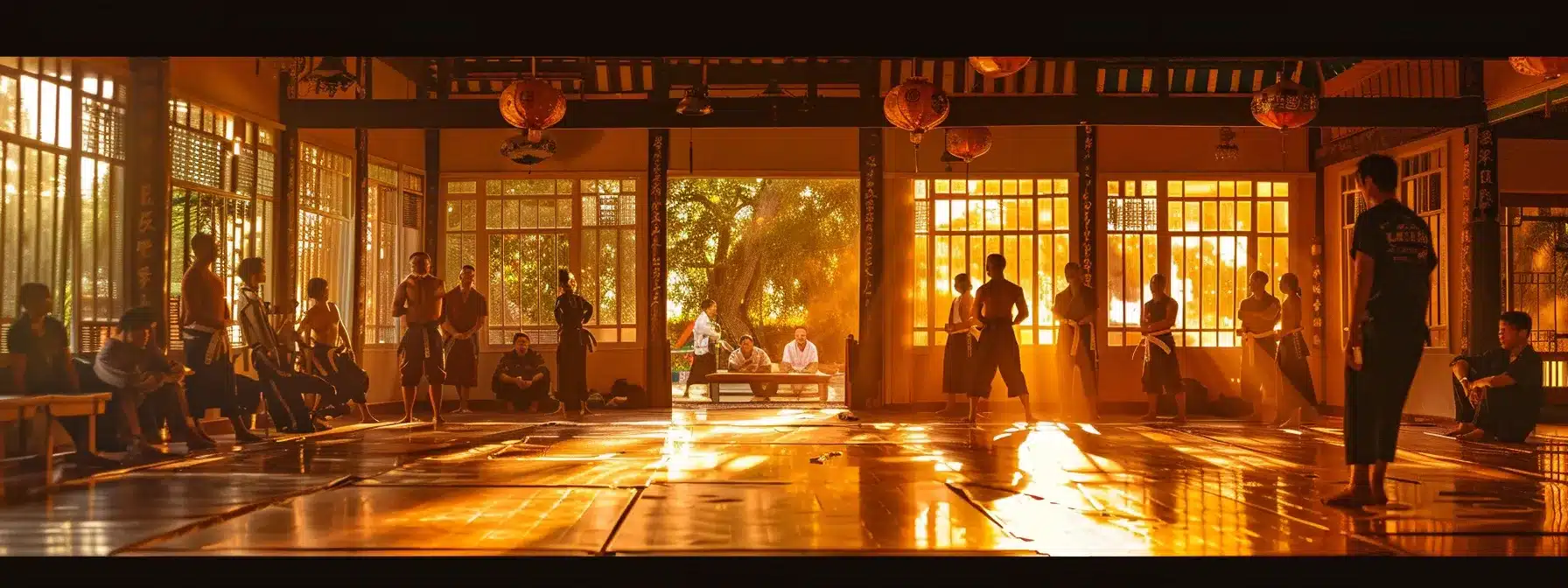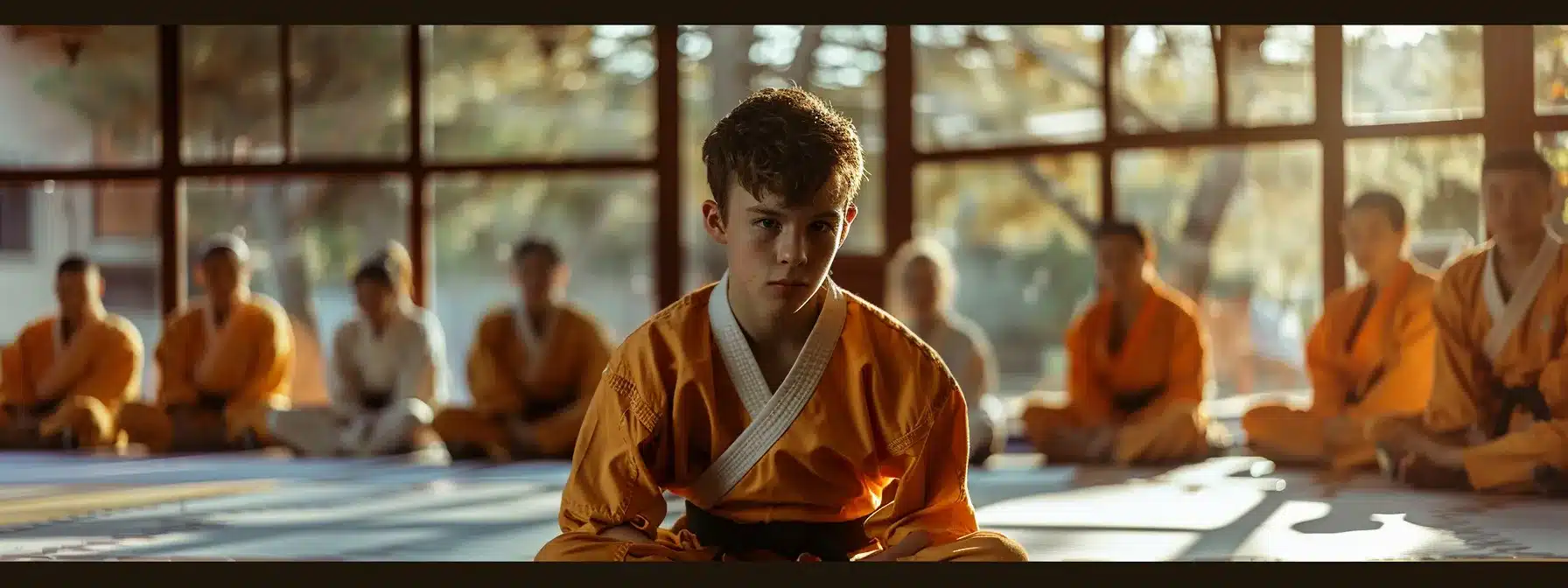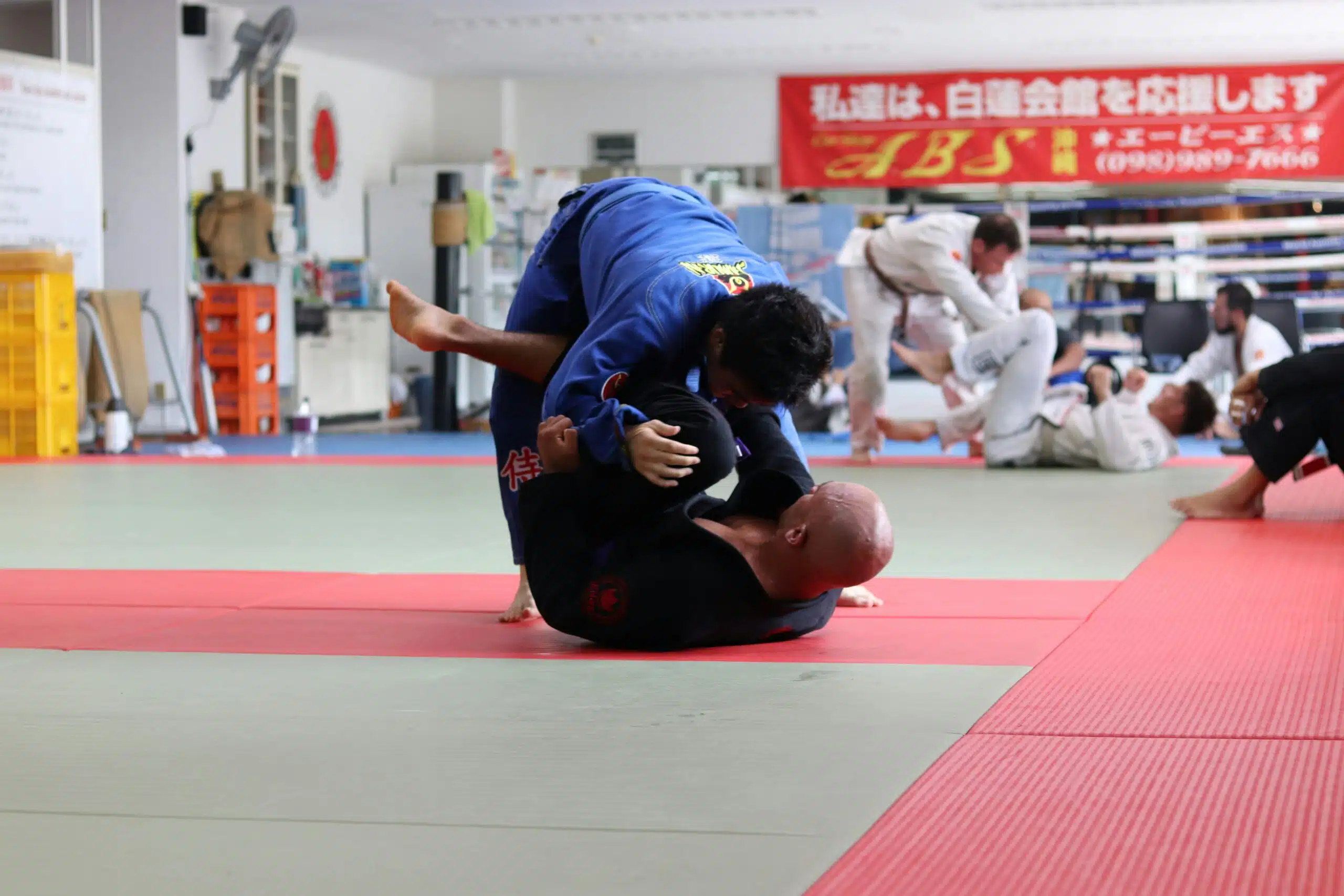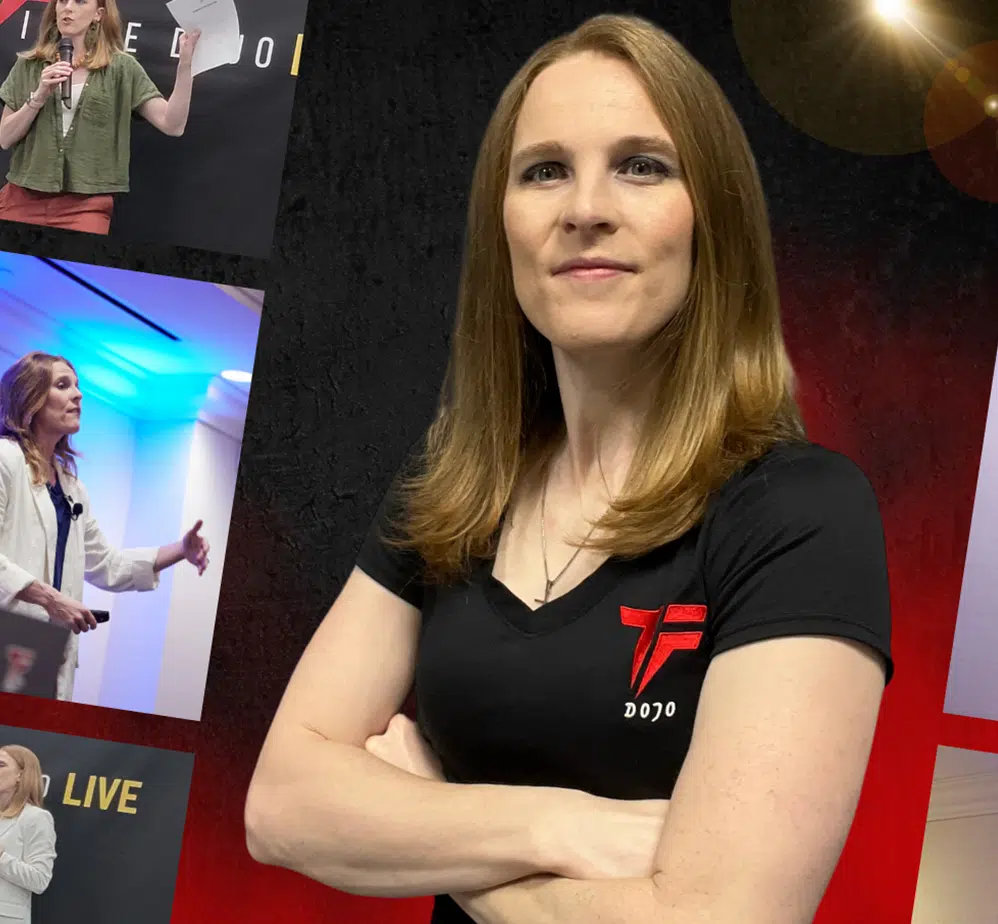Choosing the right martial arts coaching program can be daunting for school owners who are facing an overwhelming number of options. Understanding which program will best support the growth of their dojo requires careful consideration. This blog explores the key attributes that make a coaching program effective, the financial aspects to remember, and how to integrate these strategies into a martial arts business successfully.
Finding the right program is essential for school owners looking to elevate their business while maintaining a focus on disciplines like Chinese martial arts, grappling techniques, and education. The insights shared here will help guide decision-making and set the stage for long-term growth, success, and even improved mental health.
Key Takeaways
- An effective business coach should have practical experience within the martial arts industry.
- The coaching program must offer relevant and adaptable content to the school’s unique needs.
- Financial planning is a crucial component for maintaining a healthy martial arts business.
- Trial periods are valuable for assessing whether a coaching program is a good fit for the school.
- Regularly tracking the success of strategies is essential for the continuous improvement of the martial arts business.
Understanding the Value of a Martial Arts Coaching Program

For martial arts school owners, the guidance of a seasoned business coach can play a pivotal role in driving the growth and success of their dojo. A business coach helps clarify goals and ensure a balance between mastering martial arts and managing the business aspects of running a school. From refining marketing strategies to optimizing operational efficiency, a coach’s expertise contributes significantly to student retention and the creation of engaging exercise programs. When executed effectively, business coaching leads to better decision-making, streamlined processes, and a stronger connection between students and instructors. In the following sections, various factors and strategies that contribute to a successful martial arts business will be explored.
Defining Goals and Expectations
Before enrolling in a business coaching program, martial arts school owners must have clear and well-defined objectives. Setting measurable goals, such as boosting professional development within the instructor team or expanding outreach through a school’s podcast, helps create a structured approach to business growth. With defined targets in mind, the coaching program can be tailored to focus on areas such as revenue growth, student retention, and brand recognition in the martial arts community.
The Role of a Business Coach in Martial Arts Success
A business coach plays a crucial role in navigating the complexities of the martial arts industry. Their insights not only cover the martial arts themselves but also extend to vital aspects of managing a business, including marketing strategies and financial planning. A coach’s ability to help with day-to-day business challenges is akin to learning new techniques in a martial arts discipline—strategic, focused, and impactful. Martial arts school owners benefit from these insights as they work toward creating a stronger, more efficient business model.
Key Outcomes of Effective Coaching
Effective business coaching results in tangible improvements for a martial arts school. From enhanced decision-making abilities to fostering a more skilled and motivated team, the benefits are far-reaching. Owners experience growth in areas like student enrollment, operational efficiency, and marketing impact, all of which contribute to the overall success of the business. A well-coached martial arts school not only thrives financially but also provides a better learning environment for both students and instructors.
Essential Attributes of a Successful Martial Arts Coaching Program

When selecting a business coaching program for a martial arts school, several key attributes must be considered. The most successful programs share certain features that help school owners optimize their business operations and enhance student outcomes. These attributes ensure that the coaching program is not only effective but also adaptable to the school’s specific needs.
Experience and Track Record of the Coach
A coach with a solid track record in the martial arts industry can provide invaluable guidance. Their experience within combat sports and the martial arts community ensures they understand the unique challenges that school owners face. A coach who has successfully helped other schools grow, particularly in diverse disciplines such as wrestling, Muay Thai, or Shaolin Kung Fu, brings a wealth of practical knowledge that can be directly applied to any martial arts business.
Program Structure and Content Relevance
The structure of the coaching program and the relevance of its content are critical to its effectiveness. Programs that offer practical, hands-on training in areas such as business management, student retention, and marketing strategies are most beneficial. Additionally, content that integrates martial arts philosophies, such as those found in Brazilian Jiu-Jitsu or traditional karate, can resonate more deeply with school owners and instructors, making the teachings easier to implement.
Flexibility and Personalization Options
No two martial arts schools are exactly alike, and a coaching program must reflect this. Flexibility in the program allows for adjustments based on each school’s unique needs. Whether it involves customizing marketing approaches or adapting training methods, personalized coaching ensures that implemented strategies are as effective as possible. Just as martial artists adapt to their opponents, schools need coaching that adapts to their strengths and weaknesses.
Community and Network Opportunities
Another important aspect of a successful coaching program is tapping into a broader community and network. Programs that offer opportunities to connect with other martial arts school owners, collaborate on events, or share resources can be invaluable. Building relationships with fellow business owners through workshops, summer camps, or even local partnerships helps bolster the school’s reputation and can lead to long-term growth.
Evaluating the Curriculum: What to Look For

Selecting the right curriculum in a martial arts business coaching program is essential for ensuring long-term success. A strong curriculum will focus on developing core business skills, implementing advanced marketing strategies, and promoting effective financial planning. By evaluating the curriculum thoroughly, school owners can ensure they are getting the most out of their coaching program and setting their dojo up for sustainable growth.
Core Business Skills for Martial Arts Schools
The foundation of any successful coaching program lies in its ability to teach essential business skills. For martial arts schools, this means learning the fundamentals of financial management, customer service, and business operations. Programs that provide in-depth lessons on budgeting, forecasting, and capital allocation help owners maintain a healthy financial footing. Equally important is customer service training, as student retention often hinges on the quality of the experience provided by instructors and staff.
Advanced Marketing Strategies for Martial Arts Businesses
Effective marketing can be the driving force behind a martial arts school’s growth. Martial Arts coaching programs that teach advanced marketing strategies, such as digital advertising, social media engagement, and content creation, enable school owners to expand their reach and build a strong brand presence. By mastering platforms like Instagram, Facebook, and YouTube, martial arts schools can better connect with their community and attract new students, ultimately boosting enrollment and revenue.
Financial Planning and Management for Stability and Growth
Strong financial planning is critical to the longevity of any martial arts school. Coaching programs that emphasize the importance of financial stability, including cash flow management, expense tracking, and investment strategies, provide a clear roadmap for growth. A solid understanding of financial principles allows school owners to make informed decisions, manage unexpected costs, and invest in new opportunities that will further develop their dojo.
Financial Considerations and ROI

When selecting a martial arts business coaching program, understanding the financial investment and potential return on investment (ROI) is crucial. Business coaching programs can vary widely in price, so school owners must carefully assess the cost-benefit ratio, ensuring that the program will generate measurable results regarding growth, revenue, and overall business health.
Understanding the Cost-Benefit Ratio
A thorough evaluation of the cost-benefit ratio helps school owners determine whether the coaching program is worth the investment. This involves calculating the potential value the program will bring to the dojo, including increased student enrollment, enhanced marketing reach, and overall revenue growth. If the program’s benefits outweigh the costs, it can be a powerful tool for long-term success.
Assessing Program Fees vs. Potential Growth Impact
Weighing program fees against potential growth is a critical step in choosing the right business coaching program. School owners should consider how the program will impact their operations, marketing efforts, and overall business performance. For instance, a coaching program that offers insights on expanding student enrollment and building a stronger community presence may lead to higher revenues, making the initial investment worthwhile.
Finding a Program That Suits Your Budget
Selecting a coaching program that aligns with the budget is essential, especially for smaller martial arts schools with limited resources. However, affordability should not compromise the program’s quality or the long-term benefits it can offer. Careful research can help school owners find cost-effective programs that deliver significant value without causing financial strain, allowing the school to invest in growth and improvement while maintaining financial health.
Integrating a Coaching Program Into Your Martial Arts Business

Integrating a business coaching program into a martial arts school requires thoughtful preparation and a commitment to change. School owners must be ready to implement new strategies, adapt existing operations, and closely monitor progress to ensure the program’s success. Building a long-term relationship with a coach and maintaining a growth-oriented mindset can help sustain improvements and support continued success for the dojo.
Preparing Your Business for External Advice and Change
Introducing a business coach into a martial arts school often brings significant changes. School owners must prepare both their teams and operations for external advice and new strategies. This means creating an environment that welcomes change, simplifying routines where necessary, and fostering open-mindedness among instructors and staff. By embracing the coach’s guidance, the school can more effectively adapt to industry trends and overcome business challenges.
Implementing Strategies and Monitoring Progress
Once a business coaching program is underway, the key to success lies in carefully implementing strategies and regular progress monitoring. School owners should track metrics such as student enrollment, marketing performance, and financial health to measure the program’s effectiveness. Regular evaluations and team meetings allow for timely adjustments, ensuring that the coaching program delivers ongoing improvements and measurable results.
Building a Long-Term Relationship With Your Coach
Establishing a lasting partnership with a business coach is an ongoing process. By maintaining open communication and regularly reviewing progress, martial arts school owners can benefit from continuous coaching support. This relationship fosters trust and allows for sustained growth as the coach becomes more attuned to the school’s specific needs and goals. Regular check-ins and constructive feedback further solidify the coach’s role as a valuable ally in the dojo’s long-term success.
Making the Final Decision: Selecting the Right Program

Choosing the right martial arts business coaching program can be pivotal for school owners seeking growth and success. It requires thoroughly evaluating various programs, understanding their strengths, and determining which one aligns best with the school’s unique needs. By comparing options, identifying essential features, and taking advantage of trial periods, school owners can confidently commit to a program that will propel their dojo to the next level.
Comparison Techniques to Narrow Down Your Options
When narrowing down coaching program options, it’s important to create a structured comparison process. School owners can list potential programs and evaluate them based on factors such as their success rates, curriculum relevance, and alignment with the school’s goals. Special attention should be given to programs with a proven track record in the martial arts industry. Comparing features like flexibility, personalization, and cost helps focus on those programs best suited to addressing specific challenges and objectives.
Identifying Deal-Breakers and Must-Haves
Understanding the essential elements of a business coaching program is crucial for making an informed choice. Deal-breakers may include a lack of experience in the martial arts industry or rigid program structures that don’t allow for customization. Must-have features often include a coach with industry expertise, a curriculum that focuses on key areas like student retention and marketing, and a flexible coaching schedule that accommodates the school owner’s availability. Identifying these factors helps streamline the decision-making process and ensures that the chosen program meets the school’s needs.
Leveraging Free Consultations or Trial Periods
Taking advantage of free consultations or trial periods allows martial arts school owners to experience a coaching program firsthand before making a commitment. These opportunities provide valuable insight into the coaching style, curriculum content, and the program’s overall fit with the school’s culture. By engaging in these trial sessions, school owners can assess whether the program will deliver the desired results without upfront financial risk, making the final decision much easier and more informed.
Committing to the Program and Setting Up for Success
Once the right program is selected, fully committing to the coaching process is key to realizing its benefits. School owners should establish a clear plan for integrating the strategies learned from the coaching program into their business operations. Involving instructors, setting performance benchmarks, and maintaining open communication with the coach are critical steps to ensure that the program delivers lasting improvements. By committing to a long-term growth plan, martial arts school owners set themselves and their businesses up for success.
Conclusion
Selecting the right martial arts coaching program is critical for any school owner looking to elevate their business to new heights. A well-structured coaching program provides more than just business advice—it offers tailored strategies that address the unique needs of a martial arts school. From refining marketing efforts and improving student retention to optimizing financial management, the right coach can have a profound impact on the school’s overall success.
School owners can confidently choose a program that provides immediate and long-term benefits by evaluating the coach’s experience, ensuring the curriculum aligns with business goals, and carefully considering financial factors. With the proper guidance, martial arts school owners can not only grow their business but also build a stronger community, enhance their brand, and ensure the future success of their dojo. The commitment to business coaching is a strategic investment that pays dividends in the form of student growth, increased revenue, and a thriving martial arts school.


